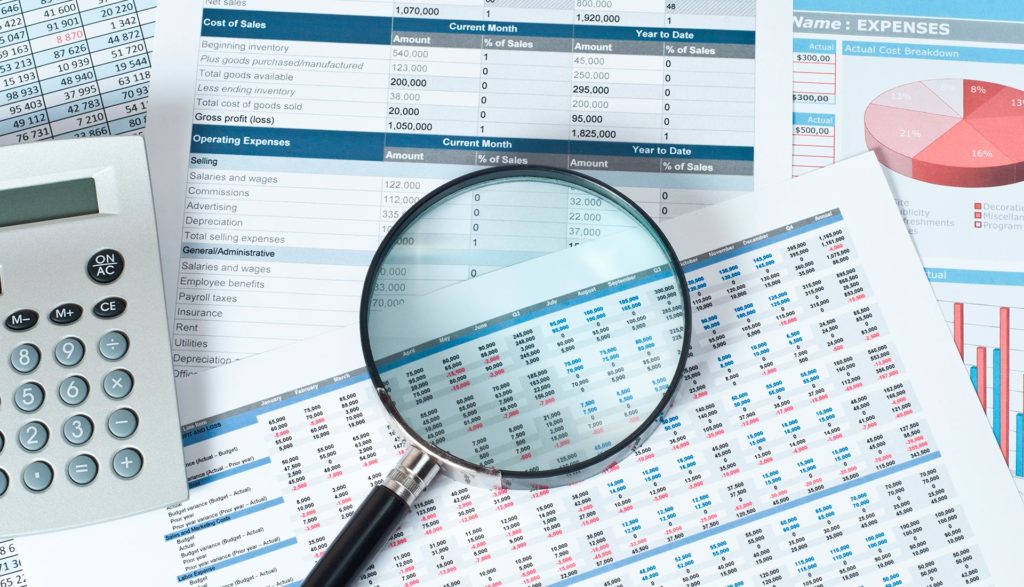As a business owner, board member or high-level executive, it is important that you understand how to read financial statements, and know what they are telling you. Financial Statements are essentially a report card for the business and they will tell you how much money is in the bank, who owes you money, and what bills are coming due. The Financial Statements also tell you how much debt is owed, along with how profitable the company is. Read further to learn more about financial statements.
Profit & Loss / Income Statement
The Profit & Loss (P&L), is also sometimes called the Income Statement; you can use the two terms interchangeably. This report tells you how much profit or loss your company has for a certain time period. Some people also use the phrase “tell me the bottom line” which is the same thing as stating your total profit or loss. If you have a budget in place, you can also use this report to benchmark and compare where current expenses and income are to the budget.
The P&L lists out all of your income and expenses by category. Some common examples of expenses are rent, utilities, payroll, office expenses and insurance, just to name a few. You can also get as detailed as you want by breaking out your various sources of income instead of just lumping it all into the “income” category.
Balance Sheet
This report tells you how much cash you have on hand, what is owed to you, what you owe to other people, the amount of debt you have, expensive items such as building and equipment, and how much equity the company has. The Balance Sheet equation is:
ASSETS = LIABILITIES + OWNERS EQUITY
Assets include cash, inventory, equipment, and money owed to you.
Liabilities include money owed to others, payroll liabilities, and loans.
Owners Equity is what the company would be worth if it sold all of it’s assets & paid all of it’s liabilities.
Click Here to read an article from the SEC to learn more about how to read financial statements. In order to make sure you have good financials statements, you need to have a quality bookkeeper or accountant inputting your company’s data. If your financial statements aren’t adequate due to the inexperience of the individual, it doesn’t matter if you read the financial statements, as they will be misleading and wrong. Reach out to CFO 4 Your Biz to get your books set up properly in order to produce quality financial statements.

